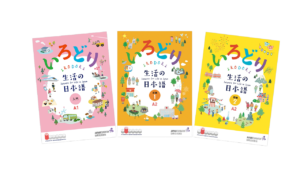
Introduction of Reading and Writing Activities of IRODORI
Reading and Writing activities are based on authentic or quasi-authentic materials that are actually used in daily life in Japan. Please see the “How to Teach” PDF at the URL above.
In IRODORI, the aims of the “Reading” and “Writing” activities are as follows:

The aim is to get the necessary information in written texts in everyday life, such as announcements, notices posted in public facilities, and menus at restaurants, as well as to read and understand the content of pamphlets written in simple Japanese for non-Japanese residents.
Skimming & Scanning
What and how do you read in your daily life? (Signs, message boards, SNS, e-mails, letters… etc.) We think everyone reads in different ways according to various types of reading materials and purposes. For example, there are two ways of reading: “to find necessary information which is called Scanning” and “to roughly understand the contents which is called Skimming”. IRODORI can help you develop these skills.

The aim is to learn skills such as filling in the forms needed for everyday life, sending messages to friends and other people, and creating simple social media posts about things that are familiar to you.
The “writing activities” do not involve academic writing.
We develop the ability to write about what is necessary in everyday situations, such as aims.
Reading Practice Material
TADOKU Website (にほんごたどく): TADOKU SUPPORTERS(What-is-TADOKU)
There is some overlap with the “IRODORI” approach to TADOKU (multiple readings). The site offers a variety of books at different levels. Read “How to Start TADOKU” page, to get a better idea of how to proceed. We encourage you and your students to follow the four golden rules and practice reading for fun!
